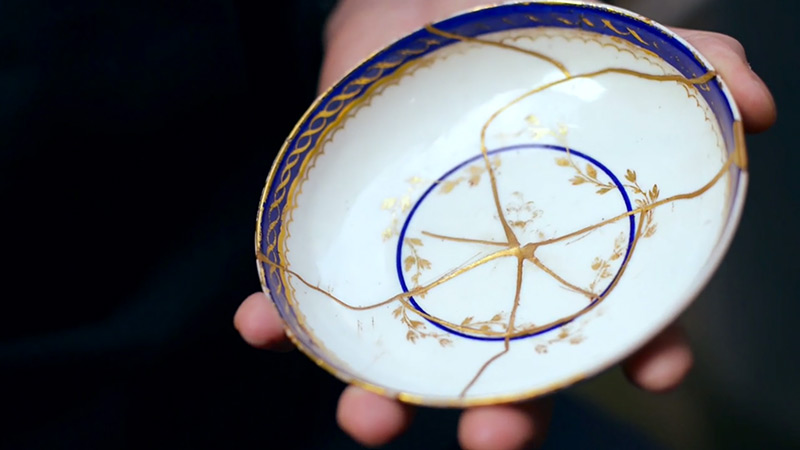Rev José Mario O Mandía
jmom.honlam.org
Have you heard of kintsugi? According to Wikipedia, “Kintsugi (“golden joinery”), also known as kintsukuroi (“golden repair”), is the Japanese art of repairing broken pottery by mending the areas of breakage with lacquer dusted or mixed with powdered gold, silver, or platinum.” The result? The repaired pottery is more expensive than the original. In a way, that’s what confession does to our souls: it repairs us and makes us more valuable.
Through confession, God forgives the sins for which we are sorry. But that’s not all. The CCCC (no 310) summarizes the effects of making a good confession as follows:
“1. reconciliation with God and therefore
2. the forgiveness of sins;
3. reconciliation with the Church;
4. recovery, if it has been lost [because of mortal sin], of the state of grace;
5. remission of the eternal punishment merited by mortal sins, and
6. remission, at least in part, of the temporal punishment which is the consequence of sin;
7. peace, serenity of conscience and spiritual consolation; and
8. an increase of spiritual strength for the struggle of Christian living.”
How about if a person was in the state of grace when he went to confession and had only committed venial sins since his last good confession? Does the sacrament help at all? Will it make any difference? Definitely!
There are two things we must remember:
1. Venial sin wounds us and weakens us. It may not kill the life of (sanctifying) grace in our soul, but unrepented venial sin debilitates us to the point of making us disposed to commit mortal sin. Hence, there is a need to get healing and grace from the sacraments of the Eucharist and Confession. When we feel the first symptoms of a flu, we immediately take Vitamin C. Let’s do the same for our soul.
2. Likewise, we must remember that the sacraments give grace. Every time we go to confession, God our Father makes us grow in the divine life that He shares with us (sanctifying grace) and He also gives more light to our intellect and strength to our will (actual graces). Confession not only forgives sinners but can make saints as well. This is why frequent confession (say once a week or every two weeks) is a must for anyone seriously trying to become holy.
Another important effect of this sacrament that we can add to the list above is growth in knowledge of self and a greater appreciation of God’s goodness and mercy. Thus, it makes one grow in humility, which is the foundation of all the other virtues. Since our struggle against pride is a lifelong task, confession is the constant companion that guarantees victory in our never-ending battle against self.
In an audience with children who had just received their First Communion on October 2005, Pope Benedict XVI said of confession:
“Even if, as I said, it is not necessary to go to confession before each Communion, it is very helpful to confess with a certain regularity. It is true: Our sins are always the same, but we clean our homes, our rooms, at least once a week, even if the dirt is always the same; in order to live in cleanliness, in order to start again. Otherwise, the dirt might not be seen but it builds up.
“Something similar can be said about the soul, for me myself: If I never go to confession, my soul is neglected and in the end I am always pleased with myself and no longer understand that I must always work hard to improve, that I must make progress. And this cleansing of the soul which Jesus gives us in the sacrament of confession helps us to make our consciences more alert, more open, and hence, it also helps us to mature spiritually and as human persons.”
Do we want to become saints? Let’s pay a regular and frequent visit to our confessor.


 Follow
Follow


